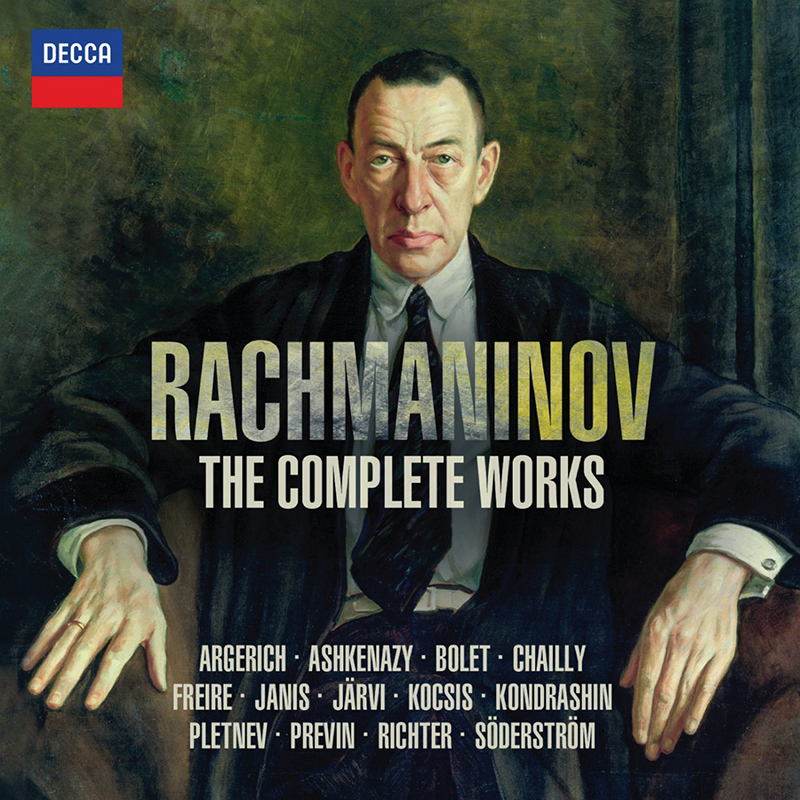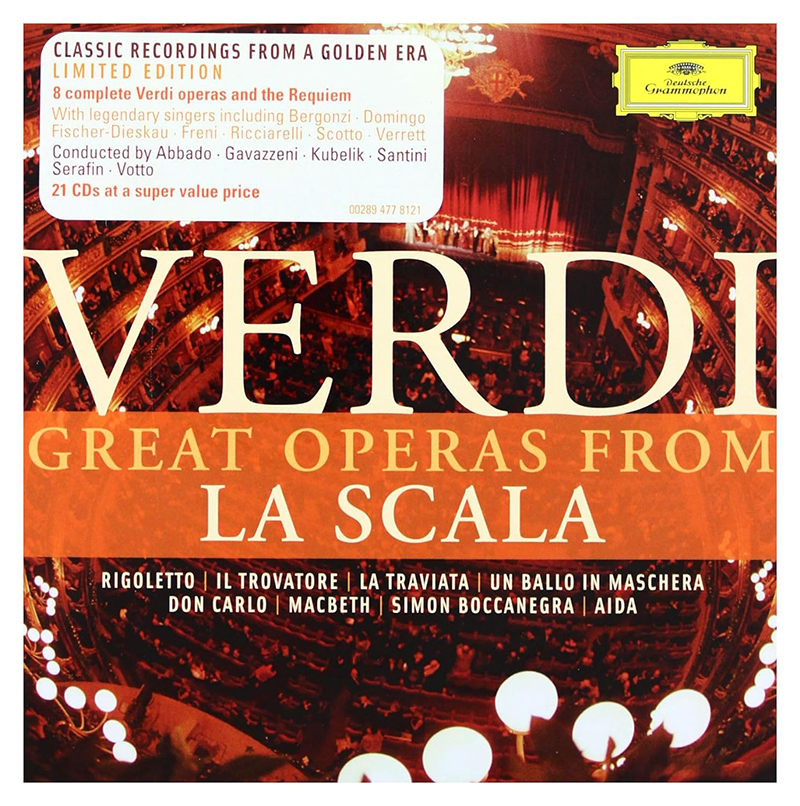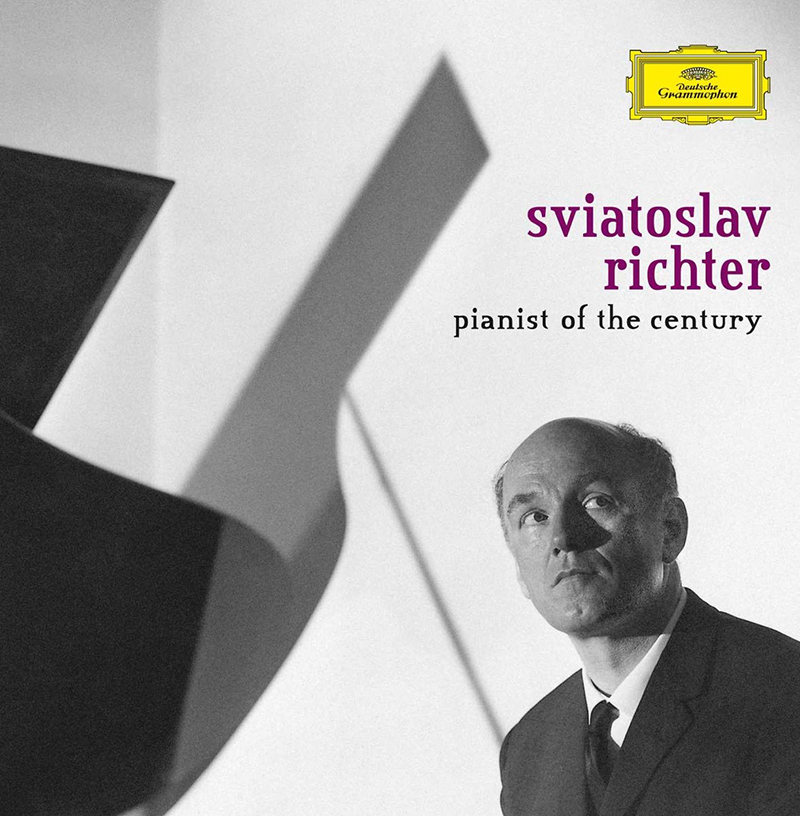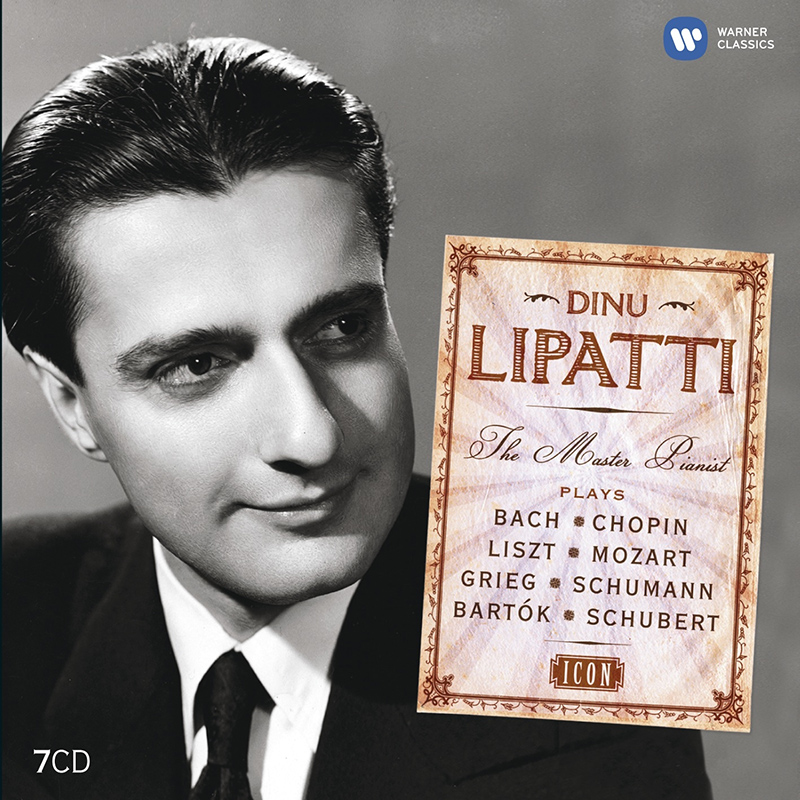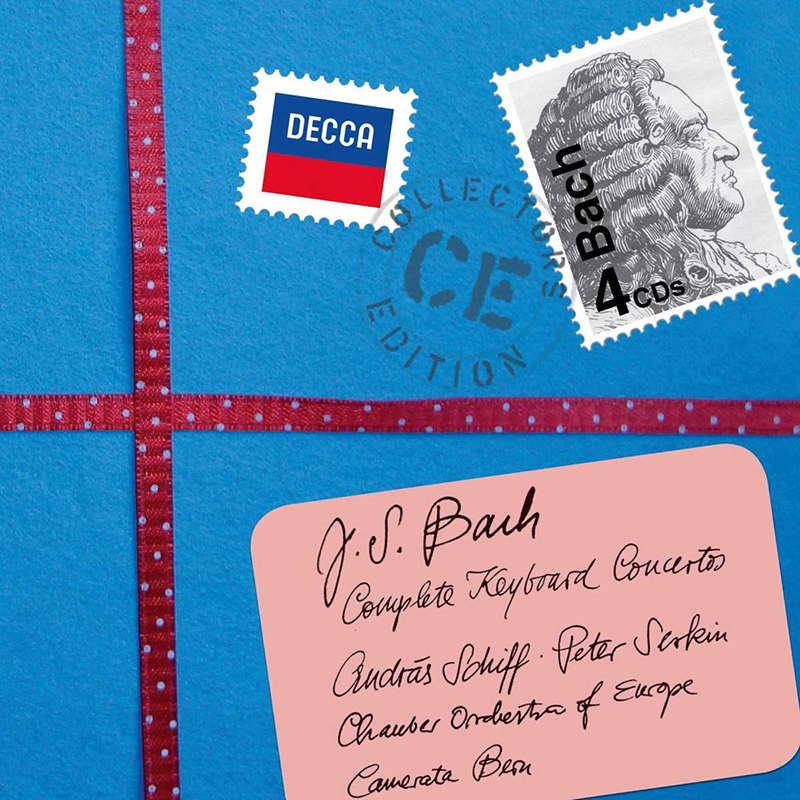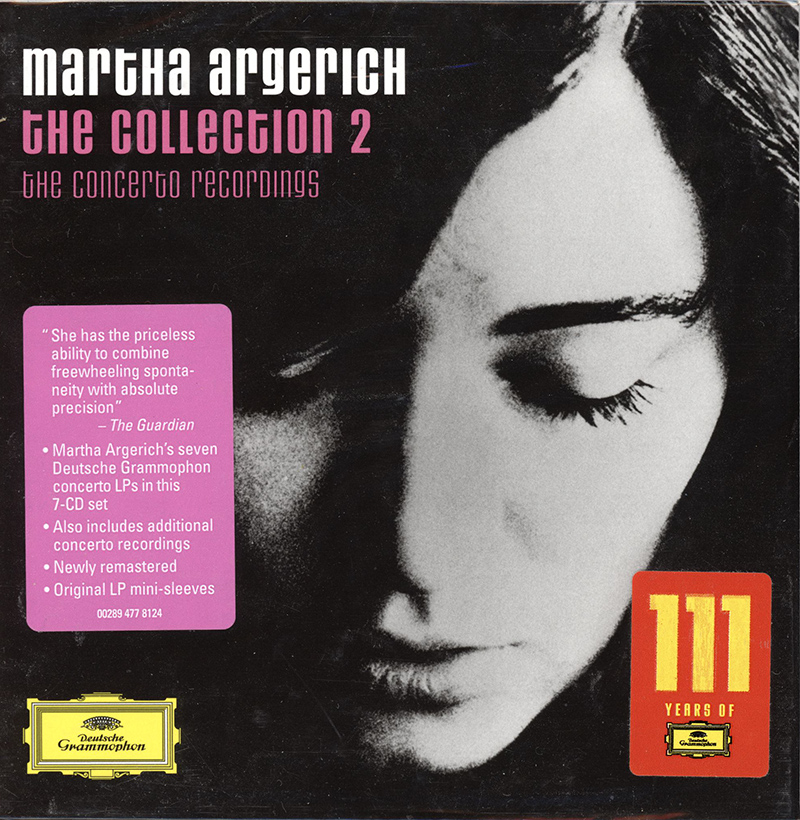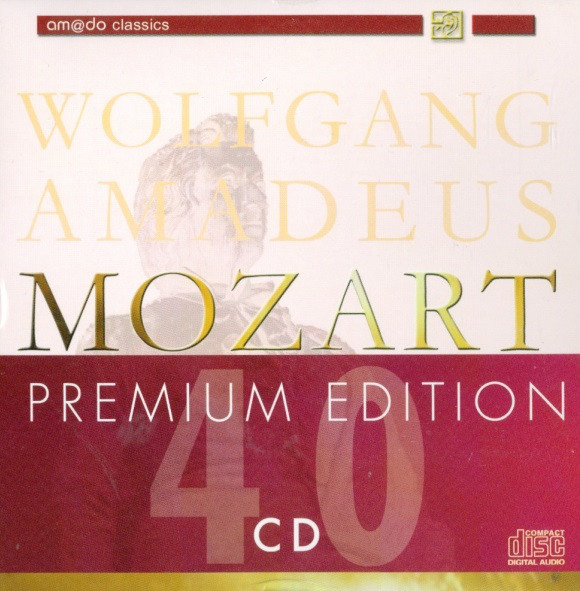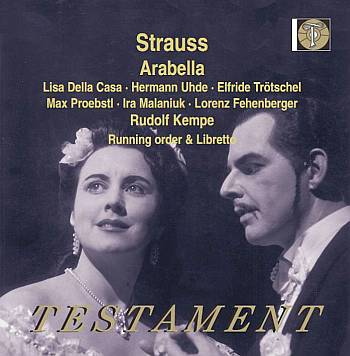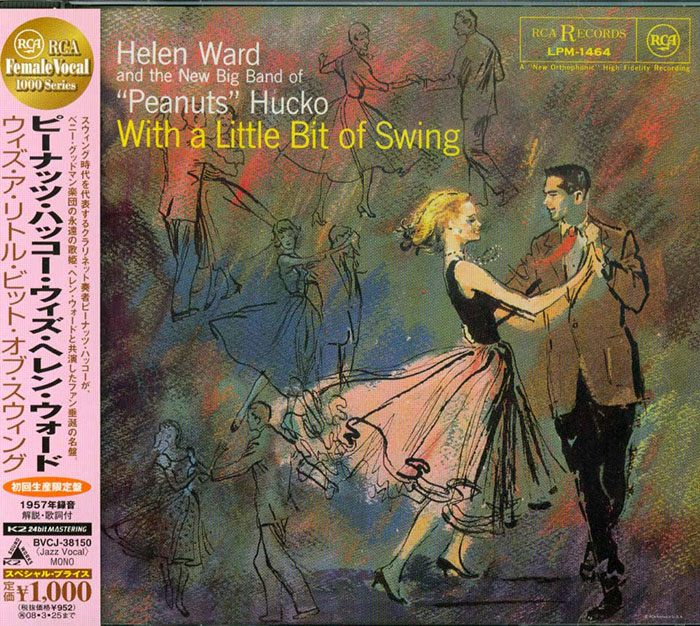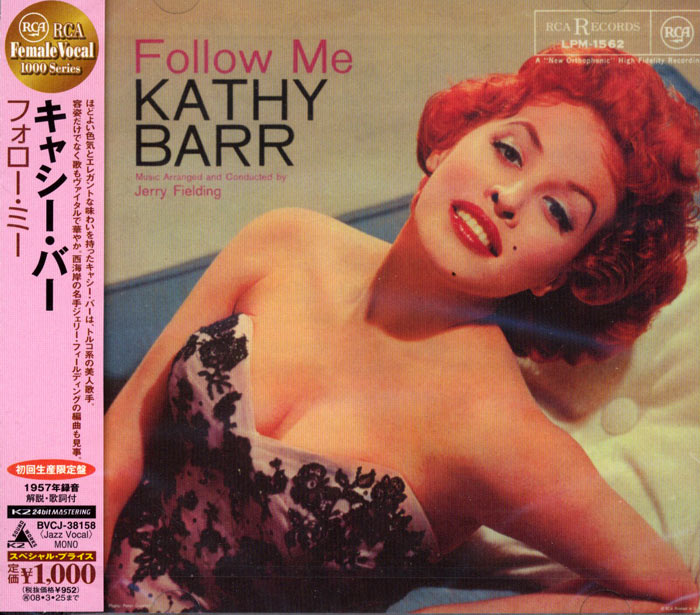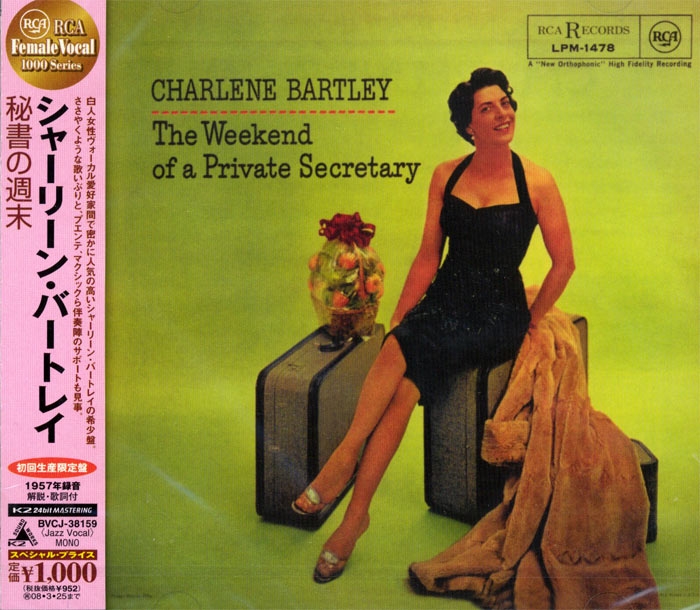Logowanie
KOLEKCJE!
BACH, CHOPIN, LISZT, MOZART, GRIEG, Dinu Lipatti, Otto Ackermann, Ernest Ansermet
The Master Pianist
PROKOFIEV, CHOPIN, TCHAIKOVSKY, SCHUMANN, BEETHOVEN, Martha Argerich, Claudio Abbado, Giuseppe Sinopoli
The Concerto Recordings
The Collection 2
Jakość LABORATORYJNA!
ORFF, Gundula Janowitz, Gerhard Stolze, Dietrich-Fischer Dieskau, Deutsche Oper Berlin, Eugen Jochum
Carmina Burana
ESOTERIC - NUMER JEDEN W ŚWIECIE AUDIOFILII I MELOMANÓW - SACD HYBR
Winylowy niezbędnik
ClearAudio
Essence MC
kumulacja zoptymalizowana: najlepsze z najważniejszych i najważniejsze z najlepszych cech przetworników Clearaudio
Direct-To-Disc
PIAZZOLLA, ChamberJam Europe
Tangos del Ángel y del Diablo
Direct-to-Disc ( D2D ) - Numbered Limited Edition
DEEE
Arabella
>>> Wiêksza ok³adka A <<<
>>> Wiêksza ok³adka B <<<
Szwajcarska sopranistka, która zadebiutowała w 1943 roku rolą Mimi w Cyganerii Pucciniego. Stała solistka opery wiedeńskiej oraz Metropolitan Opera. Jej występ na festiwalu w Salzburgu w 1947, gdzie zapiewała partię w "Zdenka", został skomentowany przez Richarda Straussa - "Mała Della Casa, będzie kiedyś Arabellą!" ("Die Kleine Della Casa wird eines Tages Arabella sein!"). Wystąpiła w mediolańskiej La Scali oraz londyńskiej Covent Garden. Była również związana z Bayerische Staatsoper w Monachium.
I have never heard a more elating and satisfying interpretation of this work than this live recording. Kempe makes sure the piece bowls along at an invigorating pace while judging to perfection when to relax in the score's purple passages. Della Case... is in ravishing voice and wholly spontaneous in her immaculately phrased and sung performance. She catches every aspect of the heroine's character, at once firm, warm and positive, and she treats the text with loving care. Her final act of forgiving Mandryka and giving herself to him is truly-heart-warming. Here, as throughout, Uhde proves himself the most convincing Mandryka on disc. Not only is he the only baritone who seems quite unfazed by the role's high-lying tessitura but he sings it with an exemplary line and tonal breadth. Gramophone 2006 You'd be hard pressed to find a more elating and satisfying interpretation of this work than this live recording, which derives from a BBC Third Programme broadcast, privately taped. Kempe more or less made his name in London with the visit of the Munich company to the Royal Opera House; it alerted everyone to his great merits as a conductor and particularly as an interpreter of Richard Strauss. In lesser readings the work can seem sprawling, but he makes sure the piece bowls along at an invigorating pace while judging to perfection when to relax in the score's purple passages. In spite of somewhat murky sound, the playing of the company's orchestra, with its then first-hand experience of Strauss himself, only four years gone at the time, brings out all the score's glinting, glowing texture. The results are inspiriting. Della Casa, in one of the earliest of her many assumptions of the title-part, is in ravishing voice and wholly spontaneous in her immaculately phrased and sung performance. She catches every aspect of the heroine's character, at once firm, warm and positive, and she treats the text with loving care. Her 1958 Salzburg reading may be slightly more confident, but for sheer beauty of sound this one is quite its equal. Her final act of forgiving Mandryka and giving herself to him is truly heart-warming. Here, as throughout, Uhde proves himself the most convincing Mandryka on disc. Not only is he the only baritone who seems quite unfazed by the role's high-lying tessitura but he sings it with an exemplary line and tonal breadth. As far as characterisation is concerned he is to the life the wilful country landowner, unused to city ways, and he makes us believe successively in the man's sincerity, jealousy and profound love, while never overdoing the histrionics. He, like his Arabella, seems in inspired form, engaging entirely with the world of Viennese bourgeoisie so unerringly created by librettist and composer. At that time, there was a strong, experienced ensemble in Munich from which Max Proebstl's endearingly Viennese Waldner, Ira Malaniuk's fussy Adelaide and Lorenz Fehenberger's impassioned Matteo stand out. Elfride Trötschel's Zdenka is not in the class of her Viennese contemporary, Hilde Gueden, but she does project the character's girl/boy dilemma with some conviction. Käthe Nentwig makes the Fiakermilli less of a trial than she can sometimes be. Mike Ashman puts the performance in its historical perspective in his booklet-note, but you have to go to the web to get a libretto. The remastering of the sound by Paul Baily allows us to hear this historic performance in more-thantolerable sound. At two for the price of one, this is an issue worth any Straussian's attention. Gramophone Classical Music Guide
